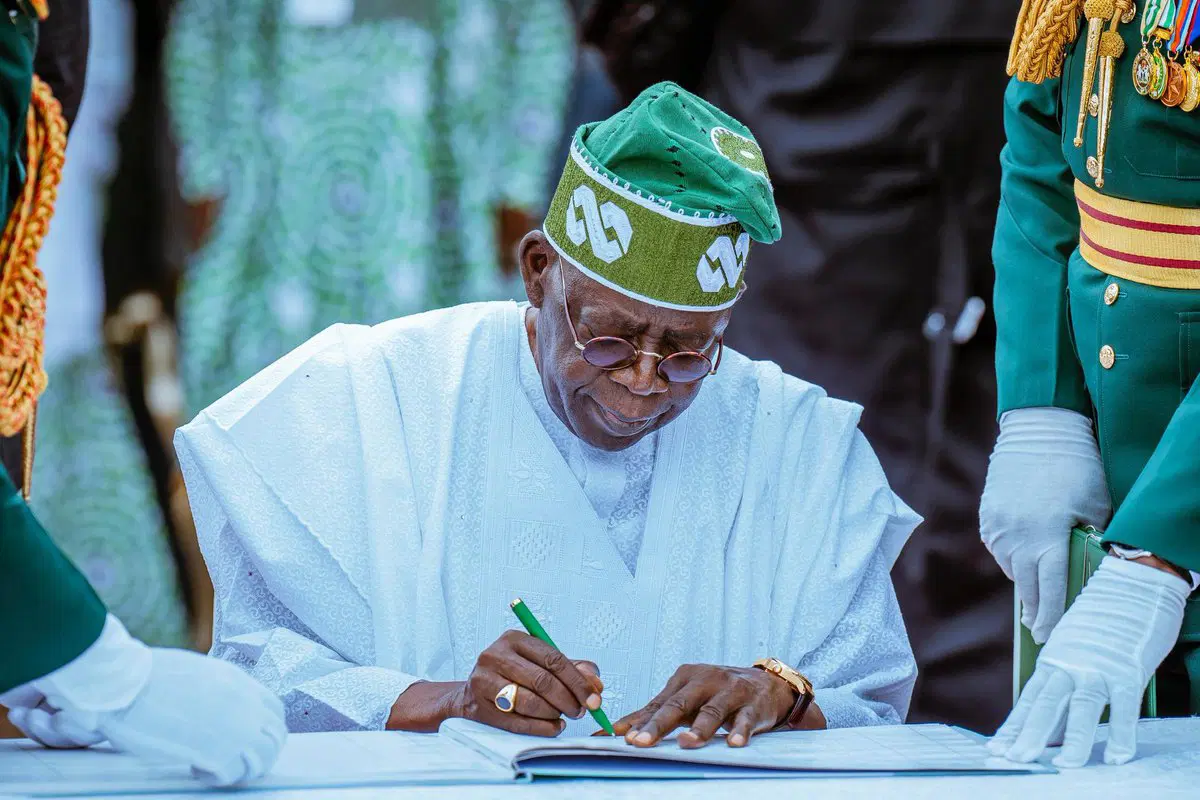President Bola Tinubu has officially launched the groundbreaking of the ambitious 1,068-kilometer Sokoto-Badagry superhighway project, aiming to enhance infrastructure and socio-economic activities across Nigeria. The ceremony took place at the project site in Illela Local Government Area of Sokoto State, with the President represented by Governor Ahmad Aliyu of Sokoto State.
This project is a key component of Tinubu’s Renewed Hope Agenda, which focuses on infrastructure development to foster national connectivity and stimulate economic growth. During the ceremony, Tinubu emphasized the importance of the project, urging citizens to support federal initiatives and take ownership of the infrastructure for their benefit.
Minister of Works, Senator David Umahi, outlined the project as part of four legacy highway projects aimed at improving road networks and train service connectivity across Nigeria’s six geopolitical zones. The other projects include:
- 750 km Lagos-Calabar Coastal Road Corridor
- Calabar-Abuja Superhighway
- 482 km Trans-Saharan Road
- 439 km Akwanga-Jos-Bauchi-Gombe Road
Umahi noted that the Lagos-Badagry superhighway project had been envisioned nearly 48 years ago during the administration of President Shehu Shagari, making its actualization under President Tinubu a testament to the current administration’s commitment to economic growth and social improvement.
The superhighway will feature a concrete road design equipped with modern amenities such as lighting, CCTV cameras, and health, traffic, and security stations to ensure swift responses to emergencies. The government has employed standard procurement methods and engaged experienced contractors to guarantee the project’s successful completion in phases, with the first phase expected to be completed before 2027.
The project will traverse several states, covering 120 kilometers in Sokoto and 258 kilometers in Kebbi, with additional portions extending through Niger, Kwara, and other states. Umahi reiterated President Tinubu’s vision of a unified nation where infrastructure projects benefit all citizens and encouraged local communities to support the initiative, highlighting the economic, agricultural, tourism, educational, and health benefits it would bring.
He also cautioned against any disruptions from community members, emphasizing that the four infrastructure projects aim to rejuvenate various sectors for the betterment of the populace.

